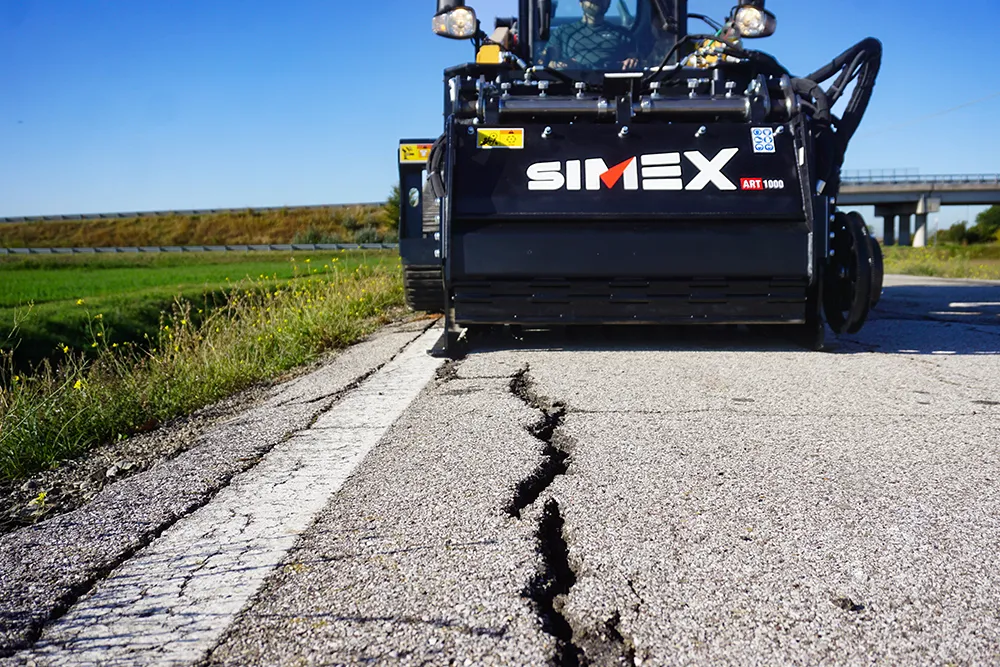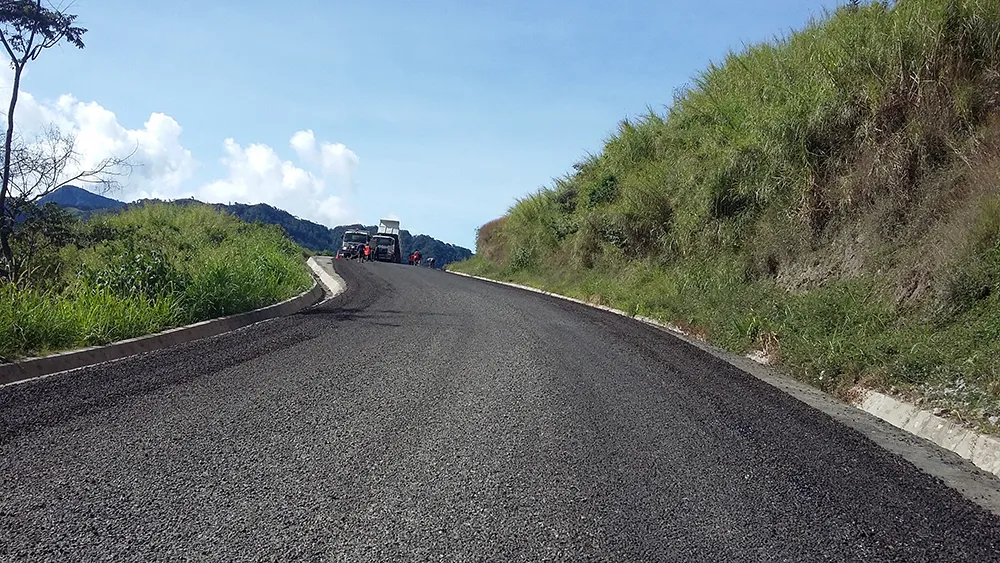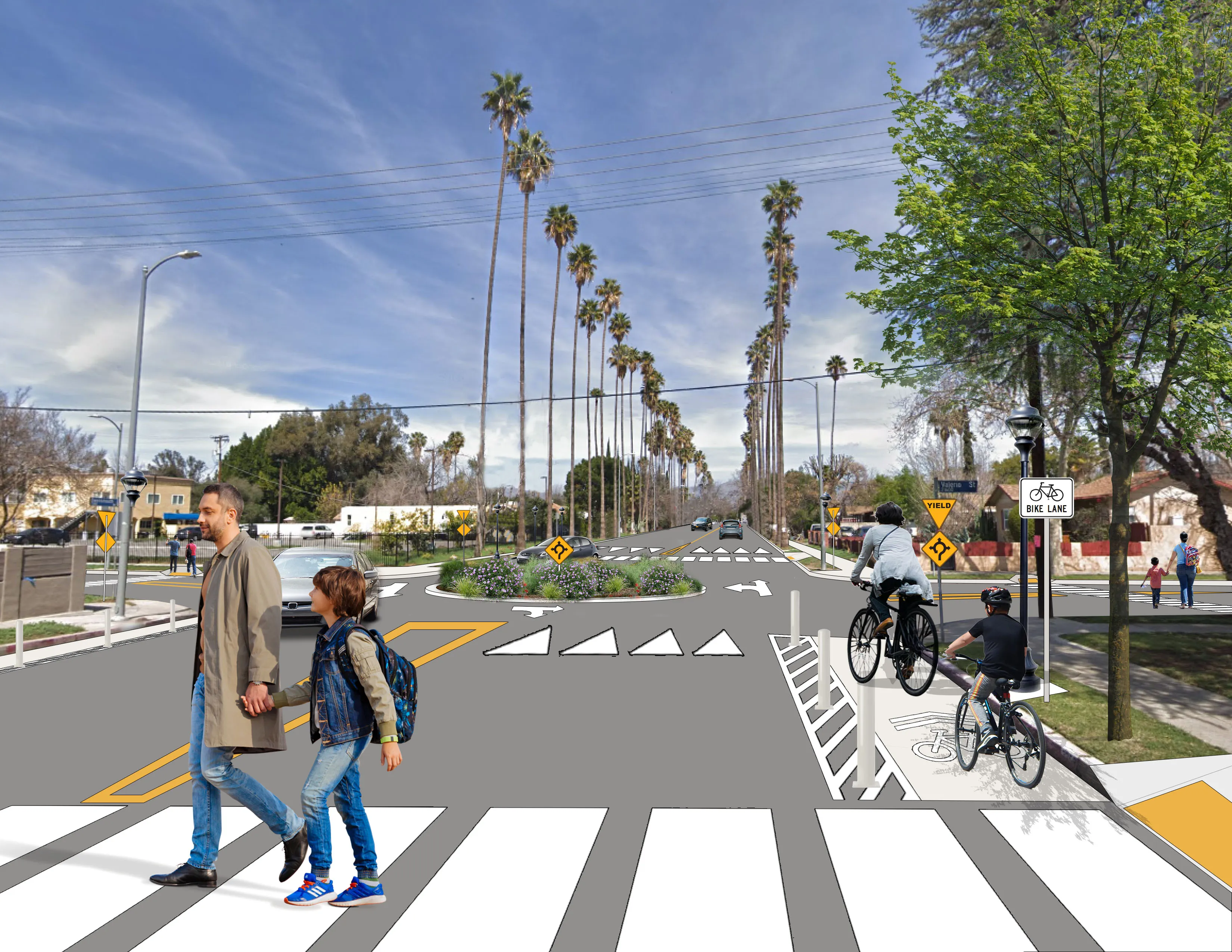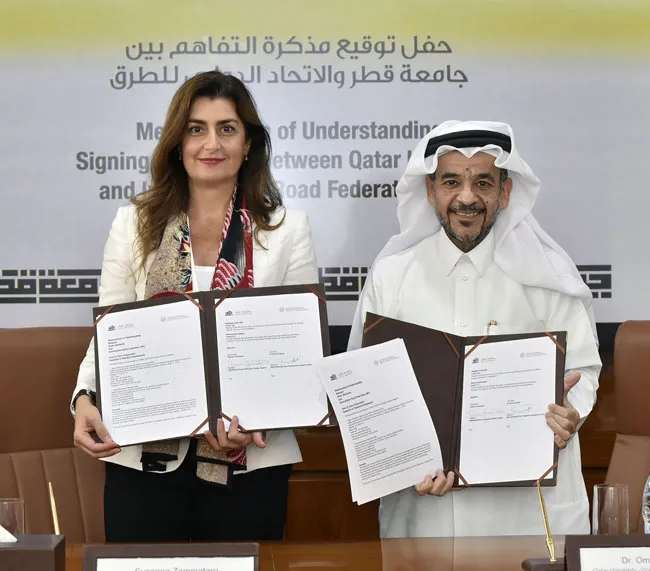
The MoU was signed by QU vice president for Academic Affairs Dr Omar Al Ansari and IRF director general Susanna Zammataro in the presence of CENG Dean Dr Khalid Kamal Naji, QTTSC director Prof Faris Tarlochan, as well as QU faculty and staff.
The terms of the MoU include – among others – collaboration for the development of effective road safety initiatives including but not limited to awareness campaigns and new training programmes for drivers, engineers and road professionals. IRF and QTTSC will jointly run development programs in coordination with international organisations and research centres. Other areas of collaboration include joint research projects in areas of transportation and traffic safety.
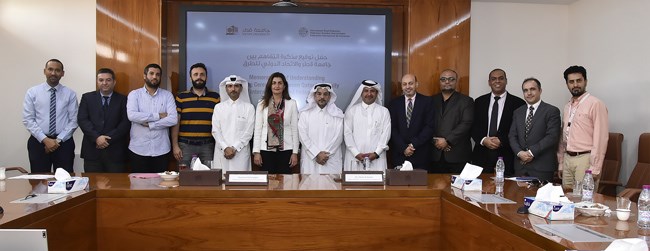
Commenting on the MoU, Dr Kamal Naji said: "Road safety is one of the main areas of interest in Qatar, and the College of Engineering through QTTSC continues to highlight its commitment to road safety by investing in research and awareness programs that would help find sustainable solutions to the road and traffic challenges in Qatar. This MoU demonstrates CENG's continuous efforts to contribute to road safety in Qatar through reducing road traffic crashes and developing a safe road transport system in line with the National Road Safety Strategy."
Zammataro said "We are delighted to strengthen our collaboration with the Qatar University. The challenges we have in front of us require more than ever for us to work very closely together. Research and good data are fundamental to be able to understand in depth what are the issues and how to tailor appropriate solutions. IRF strongly believes in the power of partnerships and we look forward to working hand in hand with Qatar University to deliver better roads and better road safety to everyone."


